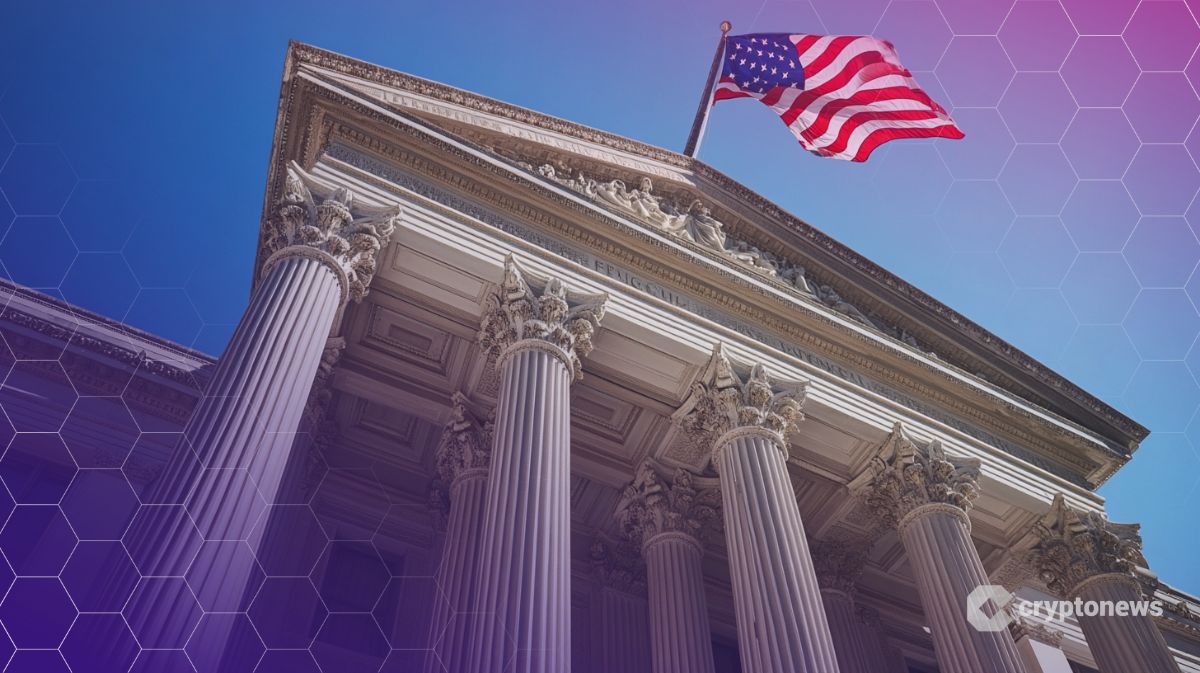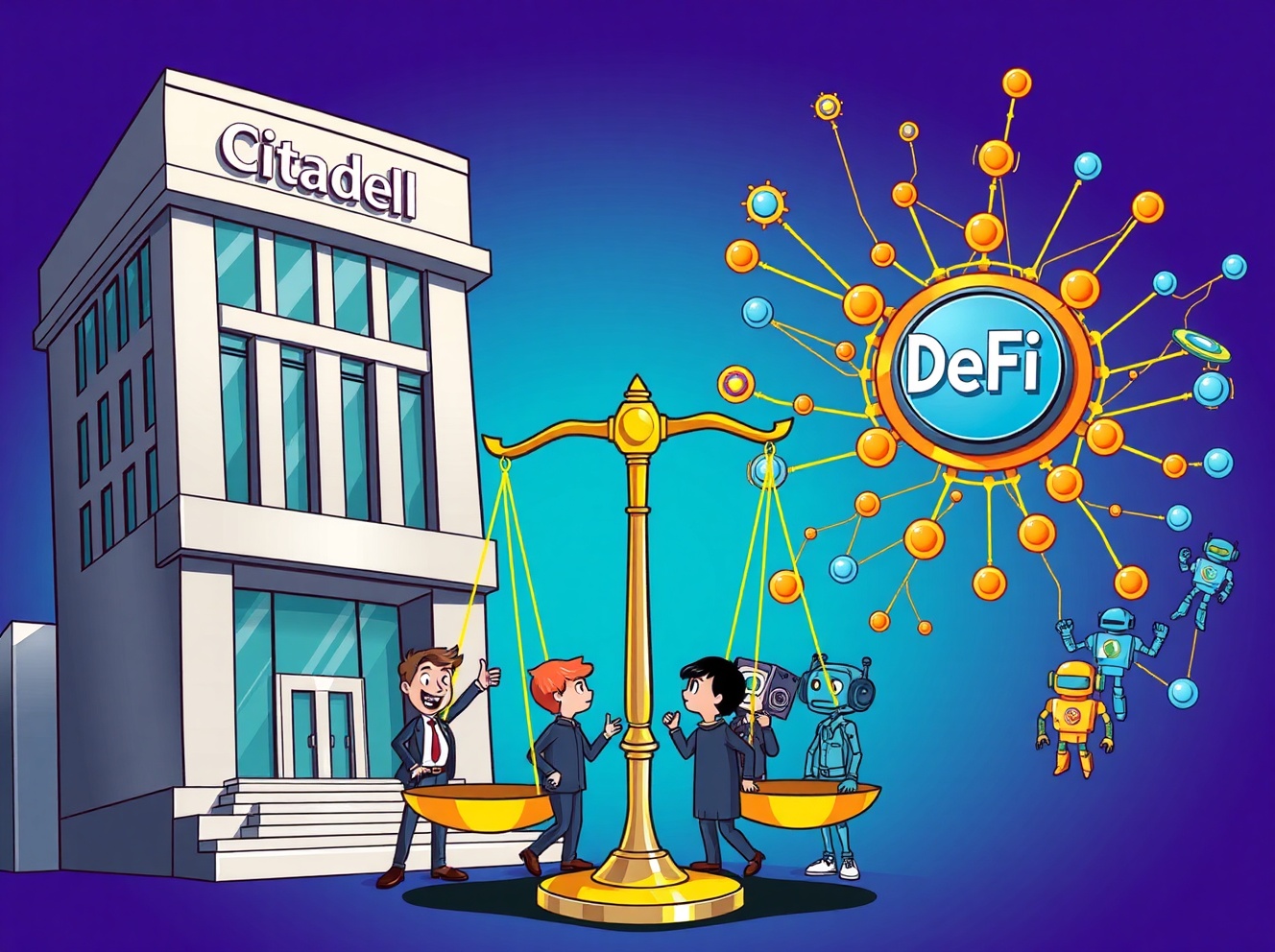Paradigm to US SEC Crypto Task Force: ‘First, Do No Harm’ When Addressing MEV

Share:
Major crypto venture capital firm Paradigm has responded to the US Securities and Exchange Commission (SEC), arguing that any regulatory intervention in Maximal Extractable Value (MEV) would potentially be detrimental to the crypto industry.
The paper, titled ‘The Key Neutrality of Baselayer Markets’, is written by Alexander Grieve, VP of Government Affairs at Paradigm, with Rodrigo Seira, a lawyer at Cooley LLP.
It states that with a regulatory intervention, the SEC would risk “disrupting a still-maturing but self-correcting market structure.” Instead, the authors encouraged the regulator to take a tech-neutral, flexible approach.
The approach, they argue, needs to preserve decentralization and foster innovation in the budding space.
Notably, the authors recognized that “certain mechanics” of MEV have the potential to create “negative externalities.” Traders may see execution below quoted prices, while certain actors can profit from network transparency to extract more value.
However, Paradigm’s main argument is that the market keeps providing solutions. The technology that powers the market is constantly evolving. Therefore, the market is already addressing the above-noted challenges.
Moreover, the authors stressed that even if MEV were to occur in transactions that are subject to the securities laws, it would still not meet the legal standards of market manipulation or insider trading.
“In fact, MEV can be consistent with the principles of US best execution,” says the report. A regulated broker can’t ignore MEV. However, various companies are constantly adapting their practices. This is due to “the dynamic nature of market structure” and trading technology shaping the scope of the obligation.
Two Paradigm Considerations for SEC
SEC Commissioner Hester Peirce recently posed 48 questions that the Crypto Task Force seeks clarity on. Paradigm says it aims to help provide this clarity on MEV. This is the maximum value miners or validators (aka block producers) can get by including, reordering, or excluding transactions when producing a block.
In response, Paradigm says that because the market provides solutions for the related challenges, regulators should be “judicious in how they choose to address” MEV and the blockbuilding supply chain.
Per the authors, the SEC must protect investors and consumers. However, “its duty to promote capital formation and foster innovation must take precedence here, and any guidance the Commission might choose to issue should take a ‘first, do no harm’ approach, and trend towards flexible principles, rather than ossifying requirements.”
The company’s first suggestion is for the SEC to consider opt-in disclosure guidelines for DeFi frontends. Specifically, for those who want to attract the trading activity of companies registered with the SEC.
These teams would utilize the disclosure to describe the technical approaches or third-party software they use to mitigate MEV.
“In so doing, registrants can make informed decisions that will best suit their best execution duties to their clients,” Paradigm argues.
Furthermore, the SEC should consider issuing guidance that explores whether entities that are registered as exchanges are also allowed to operate blockbuilders on Layer-1 networks.
The goal here is to “avoid centralizing forces and any potential conflicts of interest.” This will encourage the networks to continue moving towards decentralization at the same time.
Finally, Paradigm noted that the baselayer markets are still novel. However, the invested risk capital and continual research make them “increasingly more efficient.” It adds that “continued neutrality of the baselayer is imperative for the further development of these decentralized protocols, and egalitarian access by their users.”
The post Paradigm to US SEC Crypto Task Force: ‘First, Do No Harm’ When Addressing MEV appeared first on Cryptonews.
Paradigm to US SEC Crypto Task Force: ‘First, Do No Harm’ When Addressing MEV

Share:
Major crypto venture capital firm Paradigm has responded to the US Securities and Exchange Commission (SEC), arguing that any regulatory intervention in Maximal Extractable Value (MEV) would potentially be detrimental to the crypto industry.
The paper, titled ‘The Key Neutrality of Baselayer Markets’, is written by Alexander Grieve, VP of Government Affairs at Paradigm, with Rodrigo Seira, a lawyer at Cooley LLP.
It states that with a regulatory intervention, the SEC would risk “disrupting a still-maturing but self-correcting market structure.” Instead, the authors encouraged the regulator to take a tech-neutral, flexible approach.
The approach, they argue, needs to preserve decentralization and foster innovation in the budding space.
Notably, the authors recognized that “certain mechanics” of MEV have the potential to create “negative externalities.” Traders may see execution below quoted prices, while certain actors can profit from network transparency to extract more value.
However, Paradigm’s main argument is that the market keeps providing solutions. The technology that powers the market is constantly evolving. Therefore, the market is already addressing the above-noted challenges.
Moreover, the authors stressed that even if MEV were to occur in transactions that are subject to the securities laws, it would still not meet the legal standards of market manipulation or insider trading.
“In fact, MEV can be consistent with the principles of US best execution,” says the report. A regulated broker can’t ignore MEV. However, various companies are constantly adapting their practices. This is due to “the dynamic nature of market structure” and trading technology shaping the scope of the obligation.
Two Paradigm Considerations for SEC
SEC Commissioner Hester Peirce recently posed 48 questions that the Crypto Task Force seeks clarity on. Paradigm says it aims to help provide this clarity on MEV. This is the maximum value miners or validators (aka block producers) can get by including, reordering, or excluding transactions when producing a block.
In response, Paradigm says that because the market provides solutions for the related challenges, regulators should be “judicious in how they choose to address” MEV and the blockbuilding supply chain.
Per the authors, the SEC must protect investors and consumers. However, “its duty to promote capital formation and foster innovation must take precedence here, and any guidance the Commission might choose to issue should take a ‘first, do no harm’ approach, and trend towards flexible principles, rather than ossifying requirements.”
The company’s first suggestion is for the SEC to consider opt-in disclosure guidelines for DeFi frontends. Specifically, for those who want to attract the trading activity of companies registered with the SEC.
These teams would utilize the disclosure to describe the technical approaches or third-party software they use to mitigate MEV.
“In so doing, registrants can make informed decisions that will best suit their best execution duties to their clients,” Paradigm argues.
Furthermore, the SEC should consider issuing guidance that explores whether entities that are registered as exchanges are also allowed to operate blockbuilders on Layer-1 networks.
The goal here is to “avoid centralizing forces and any potential conflicts of interest.” This will encourage the networks to continue moving towards decentralization at the same time.
Finally, Paradigm noted that the baselayer markets are still novel. However, the invested risk capital and continual research make them “increasingly more efficient.” It adds that “continued neutrality of the baselayer is imperative for the further development of these decentralized protocols, and egalitarian access by their users.”
The post Paradigm to US SEC Crypto Task Force: ‘First, Do No Harm’ When Addressing MEV appeared first on Cryptonews.











